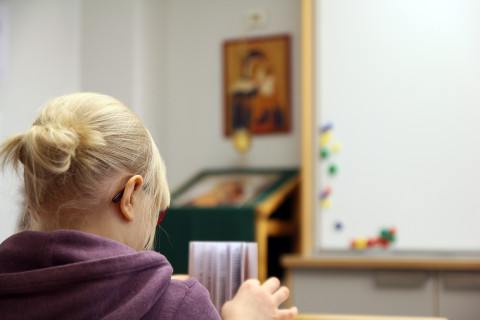The religious landscape of Europe is becoming increasingly diverse, and this is why the methods of religious education are also being improved and developed. The School of Applied Educational Science and Teacher Education at the University of Eastern Finland participates the European-wide Innovative Religious Education Network: Educating to the Religious Diversity, IRENE, project. The project is part of the Erasmus+ programme of the EU.
The IRENE project is aimed at teachers of religion, theologians and priests. The main objectives of the project are to improve the methods of religious education while considering the increasingly diverse religious landscape, to share best practices and innovative teaching methods, to increase the target groups’ competence in the field of digital learning, and to strengthen strategic links between the partners. One of the priorities of the project is to examine and develop Orthodox religious education in the contexts of both school and church.
The project is led by Asociatia Vasiliada, a civic organisation based in Romania. In addition to the University of Eastern Finland, other partners include the Institute of Ecumenical Studies in Venice, the Aristotle University of Thessaloniki, the Regional Development Foundation of Bulgaria, and the Institute of Theology of the Estonian Evangelical Lutheran Church in Tallinn.
The project will carry out a preparatory survey to identify the specific needs of the target groups in the participating countries. The research part of the project and the analysis of the interviews are coordinated by the University of Eastern Finland and the Institute of Theology in Tallinn. A variety of educational materials will be produced in the project, and it also involves research mobility and visits to educational institutions.
The project will run until 31 October 2022. At the School of Applied Educational Science and Teacher Education, the project is led by Lecturer of Orthodox Religion Pedagogy Risto Aikonen.





